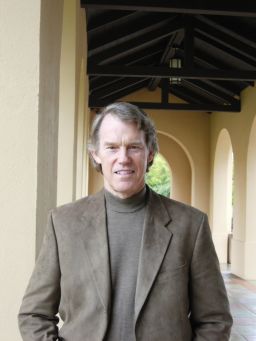Editor’s Note: William Howell is a professor of political science at the University of Chicago. Terry Moe is a political science professor at Stanford University. Together, they are the authors of “Relic: How Our Constitution Undermines Effective Government—And Why We Need a More Powerful Presidency.” Unless otherwise noted, facts included here reflect their research for that book. The opinions expressed in this commentary are their own.
Story highlights
Howell and Moe: Our founding fathers "cannot save us. We must save ourselves"
Give president "fast track" authority to foster more effective government, they urge
The media’s wall-to-wall coverage of Donald Trump and the presidential horse race is a distraction from the main event – namely, that American government is dysfunctional.
Electing a new president won’t bring us better governance. Something very different and more fundamental is needed: a more powerful presidency. Here is why.


It is easy to point to polarized parties or moneyed interests or corrupted politicians to explain our government’s profound ineffectiveness. But the bigger causes run deep – and trace all the way back to the Constitution itself. The founders crafted a government some 225 years ago for a simple agrarian society of less than four million people, 700,000 of whom were slaves.
Government was not expected to do much, and the founders, concerned about the “tyranny of the majority,” purposely designed one that couldn’t do much, dividing authority across the branches and creating veto points that make coherent policy action exceedingly difficult.
Compounding the problem, the founders put Congress at the center of lawmaking, and their design guaranteed that legislators would be electorally tied to their local jurisdictions and highly responsive to special interests. Congress is not wired to solve national problems in the national interest. It is wired to allow parochial legislators to promote their own political welfare through special-interest politics.
Having Congress at the center of lawmaking may have been adequate for a tiny rural society in 1789. But within 100 years, the nation developed explosively into a far-flung industrial society—generating countless problems along the way, from rapacious monopoly to unregulated drugs, that the founders never anticipated and their antiquated government was never designed to handle.
The disjunction only got worse with time, as American society continued to change at a frenzied pace, giving rise to a mind-boggling array of vexing problems that weigh heavily upon the nation today. Terrorism. Pollution. Inequality. Persistent poverty. And much more.
What we need is a government that can meet the challenges of the modern world. But what we have is a government designed for a primitive age nothing like our own. It is a relic of the past.
What we need for effective government
On many issues, Congress has proven utterly incapable of fashioning any kind of policy response. But even when it has been able to act, its typical policies are bizarre concoctions cobbled together to attract disparate legislators with clashing interests into coalitions – not to provide effective solutions to the nation’s problems. Look no further than U.S. tax policy, which is not a policy at all, but a grotesque conglomeration of special-interest favors and loopholes. Or the Affordable Care Act, hobbled by the influence of insurance companies, hospitals, drug firms, and other vested interests.
What can we do? Here is a simple, low-risk approach to constitutional change that promises big payoffs: With Congress the prime source of dysfunction, it should be moved to the periphery of policymaking where its pathologies can do less damage. And presidents should be moved to the center where they can do the most good.

Why presidents? Because, whether they are liberals or conservatives, they are wired to be the champions of effective government. Quite unlike legislators, presidents think in national terms about national problems, and their obsession with their historical legacies drives them to seek durable solutions to pressing national problems. They are not always right or successful. But if policymaking can be shifted in their direction—and away from Congress – the prospects for effective government will be much improved.
How do we put presidents at the center? We can do it with a simple constitutional amendment that grants presidents universal “fast track” authority. The nation has 40 years of positive experience with fast track in international trade, and that same model would simply be applied to all legislation (including appointments). Presidents would craft policy proposals – which are likely to be far more coherent, well integrated, and effective than anything Congress would design – and Congress would be required to vote up or down on those proposals, within a specified period of time and on a majority-rule basis. Congress would retain the authority to pass laws on its own, and presidents would retain the authority to veto them.
Elevating public discourse
But what, you might ask, if Donald Trump were to become president? Or Bernie Sanders? The fact is, even if a president favored policies you consider extreme or troubling, fast track would hardly make that president a dictator. Both houses of Congress would still need to give their separate consent before any proposal becomes law. Policy would be a three-way decision, not a presidential decision, and the court system and separation of powers would remain intact, along with the Bill of Rights. The entire constellation of checks and balances would continue to limit what presidents could do, much as it has for more than 200 years.
Another fear, perhaps, is that fast track would give rise to presidential “overreach.” Yet fast track only deals with legislation – it adds nothing to the president’s unilateral powers, which are what “overreach” is all about. Indeed, a big reason presidents have favored executive orders and other unilateral actions is that, with Congress such a disaster, the legislative process is all but shuttered as a venue for solving problems. Under fast track, however, presidents would use legislation more and unilateral action less.

Consider immigration. President Bush submitted immigration reforms to Congress in 2005 and 2006, and President Obama submitted another in 2013. All these bills had majority support in Congress, yet the first two lost on Senate filibusters and the third failed because Speaker John Boehner refused to let the House vote. The result? No reform, a festering immigration problem – and a 2014 executive order by Obama that has caused all sorts of consternation on the political right.
With fast track, the nation would have passed a bipartisan immigration law more than ten years ago. And Obama’s executive order would never have been issued.
Lastly, some might worry that fast track would forestall the kind of public deliberation that is so central to our democratic system of government. It would not. If anything, by forcing legislators to evaluate, debate, and pass judgment on policies that address national, long-term problems, fast track would elevate public discourse in Washington.
Let’s face it: our government doesn’t work. Fast track is a simple, low-risk way of updating our antiquated system for modern times – making it easier for government to act, more likely that it will act effectively, and more likely that the national interest will triumph over special interests.
It is up to us to fashion political institutions that allow for effective government in our own times. The founders had no idea what a modern society would look like, and they cannot save us. We must save ourselves.
Join us on Facebook.com/CNNOpinion.
Read CNNOpinion’s Flipboard magazine.
William Howell is a professor of political science at the University of Chicago. Terry Moe is a political science professor at Stanford University. Together, they are the authors of “Relic: How Our Constitution Undermines Effective Government—And Why We Need a More Powerful Presidency.” Unless otherwise noted, facts included here reflect their research for that book. The opinions expressed in this commentary are their own.


